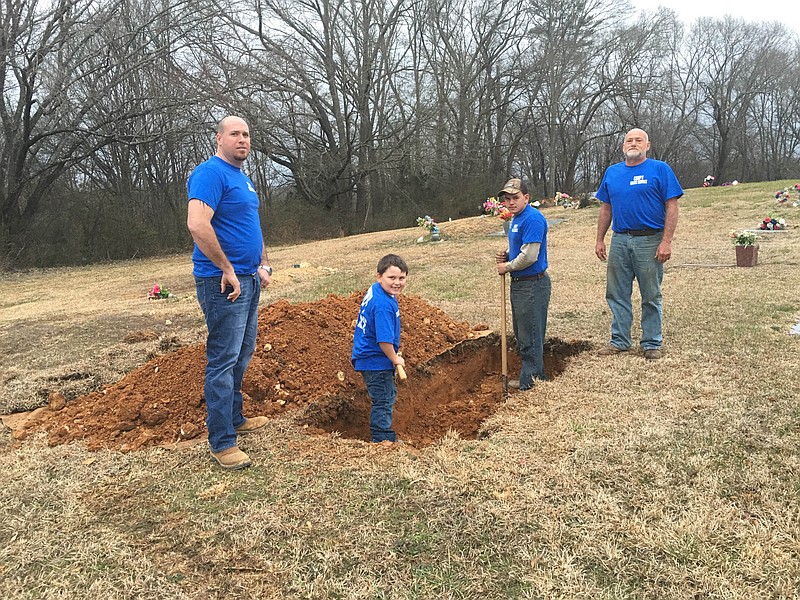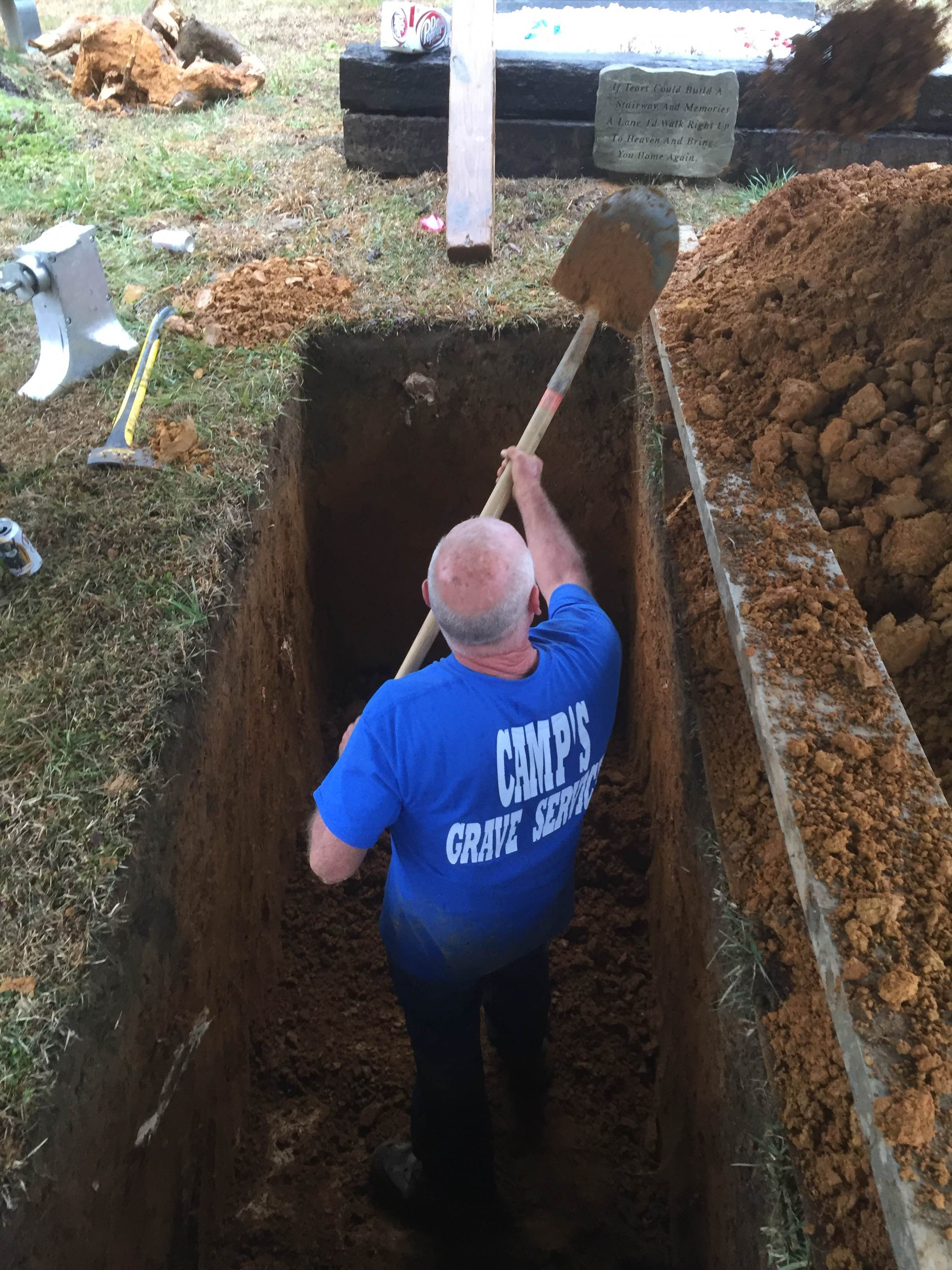A standard human grave is 8 feet long, 3 feet wide and 4 feet deep. A strong person, working nonstop, can dig a grave by hand in about two and a half hours.
It's a job as old as mankind, an ancient and solemn profession that's hard on the body and punishing on the spirit.
Dennis Camp, 58, of Rockmart, Ga., is proud to be a professional gravedigger. His normal fee is $550, but for those who can't pay, his services are free.
"The good Lord has blessed me with good health and let me continue to work," says Camp, who has had shoulder and back surgery after digging "thousands" of graves.
Camp's Grave Service is a family business. Dennis and his 19-year-old son, J.T., work full time digging graves, and Dennis' oldest son, Steven, helps part time. The baby of the family, Wesley, age 8, is already telling people he wants to be a gravedigger when he grows up.
Dennis Camp says he has been digging graves for 30 years. He started the family business in 1994, and recently the family purchased Crest Lawn Cemetery in LaFayette, Ga. He owns a vault company, too.
The Camps will dig graves anywhere within a 100-mile radius of their home in Rockmart, which is about 50 miles north of Atlanta.
They see honor in their work.
"People try to call me a 'grave technician' or an 'interment specialist,'" Dennis says. "But I don't need a fancy name. I'm a plain ol' gravedigger."
J.T. says he always knew he wanted to follow in his father's footsteps. As far back as the first grade, J.T. told a teacher he didn't need to learn math because he intended to work with his hands.
"I've never wanted another job," says J.T., a high-school graduate who did eventually buckle down and crack the books. "I learned math watching my Daddy run a business."
While the Camps do sometimes use a trackhoe, a piece of trench-digging equipment, many graves must be dug by hand. Some cemeteries can't accommodate heavy equipment, and the Camps would rather dig with shovels than risk damaging existing graves.
For hand-digging, their toolkit includes picks, shovels, axes and sledgehammers. Often, the dirt from a grave must be hauled away in a wheelbarrow. If the ground is rocky, they bring in a jackhammer.
"We also hand-cover every grave [during interment] to give families the utmost respect," Dennis says.
While grave-digging can be hard on the body, it's also hard on the heart. Imagine attending burials, day after day, year after year. The Camps say they are not immune from the emotions of these ceremonies, especially when dealing with victims of premature death.
"When you have a baby or a real young person [die], it makes you feel sad," Dennis says. "With a baby, you know hearts have been broken."
"These families are in a time of need," J.T. says. "I do my best to put them at ease."
The Camps also have compassion for families that can't afford to pay their fee. For those truly in need, they lower or waive their fee.
Dennis says people have tried to barter for his services.
"I've had one or two tell me they've got a old car they'll give me. But I can tell they usually need it, so I just tell them, 'No thanks, you don't owe me anything,'" Dennis says.
"We will never be rich, I don't guess, but the Good Lord has provided us with good life so we can do this," he says.
The first shovelful of dirt hitting a lowered casket is one of the most forlorn sounds on Earth.
Having a good, compassionate man like J.T. Camp behind the shovel feels like an act of divine intervention.
Contact Mark Kennedy at mkennedy @timesfreepress.com or 423-757-6645. Follow him on Twitter @TFPCOLUMNIST. Subscribe to his Facebook updates at www.facebook.com/mkennedycolumnist.

